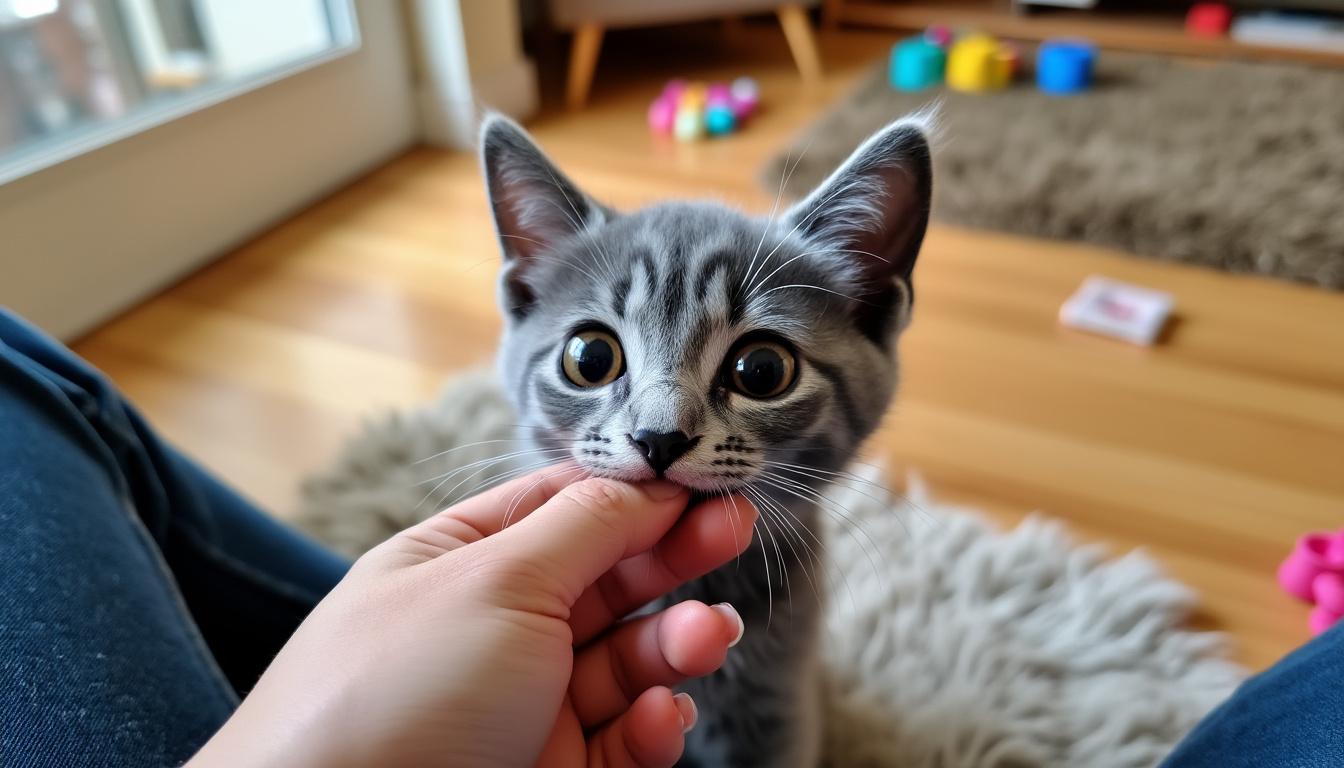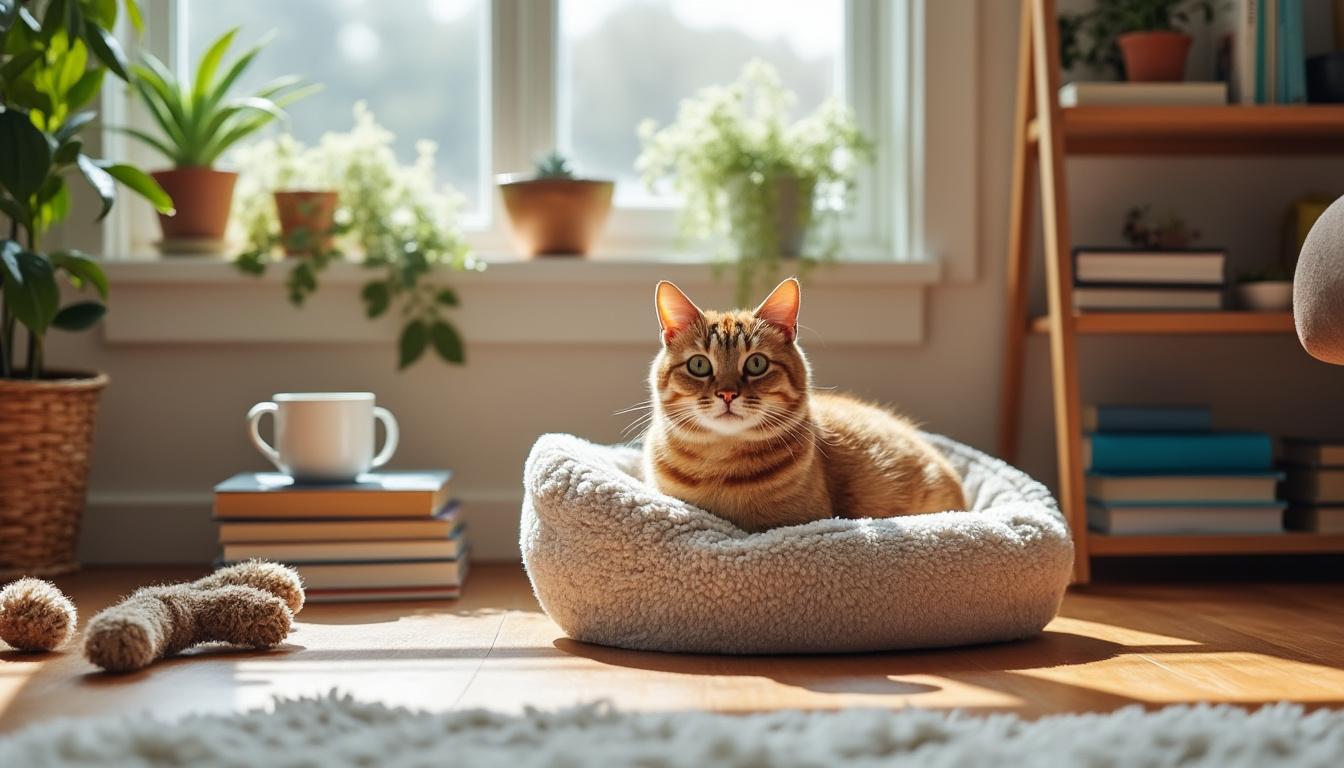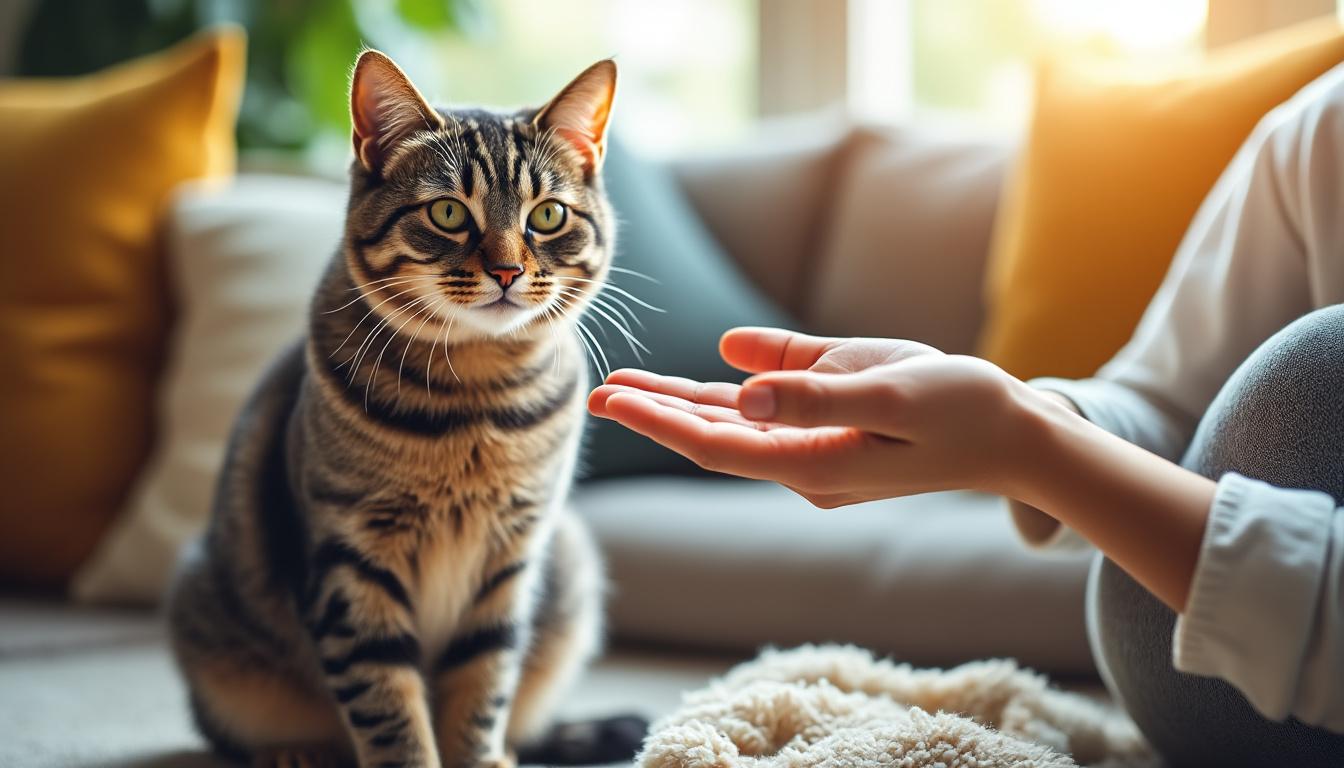Cats can be cute, cuddly, and full of personality. However, every now and then, they can also turn into little bitey monsters! If you’ve ever been on the receiving end of your furry friend’s playful nibbles, you know how perplexing and sometimes painful it can be. Understanding why your cat bites and how to mitigate this behavior is crucial for maintaining a happy relationship between you and your feline companion. From playful kitten antics to defensive adult reactions, a variety of factors contribute to biting. Here, we will explore effective strategies for educating your kitty to play nice and reducing those pesky little bites.
In brief:
- Recognize the reasons behind your cat’s biting behavior 🐾
- Implement gentle training methods that promote positive behavior 🙌
- Use appropriate toys and distractions to avoid biting ⚽️
- Create a calm environment to reduce stress for your pet 😌
- Consider consulting professionals if biting persists 🐱🏍
Understanding Why Cats Bite: The Reasons Behind the Behavior
The first step in curbing your cat’s biting habit is understanding why they do it in the first place. Cats communicate in various ways, and biting can signify multiple emotions or needs. Common reasons include:
- Playfulness and Hunting Instincts: Cats are natural hunters. When they bite during play, it mimics their instinctual behaviors from the wild. Young cats may use their teeth to interact with their siblings or mother, and they might carry this behavior into adulthood.
- Affection vs. Aggression: Sometimes, a cat might nip as a form of affection. It can feel confusing when your cat leans in for some love and responds with a bite instead! Recognizing the difference between playful affection and aggressive biting can help.
- Fear or Stress: Stressful situations, such as loud noises or unfamiliar surroundings, can make a cat lash out defensively. For instance, if your cat is feeling threatened, biting can be a way to protect themselves.
- Overstimulation: Cats can become overstimulated during playtime, leading them to unexpectedly bite. This is often seen after prolonged interaction or when they receive too much attention all at once.
- Medical Issues: Sometimes a cat might bite due to pain or discomfort. If biting becomes more frequent or seems uncharacteristic, a vet visit might be in order to rule out health issues.
| Reason for Biting | Description |
|---|---|
| Playfulness & Hunting | Cats mimic hunting behaviors while playing, leading to nibbles. |
| Affection | Some bites might be a misguided show of love. |
| Fear/Stress | Biting can be a defense mechanism in fearful situations. |
| Overstimulation | Prolonged play can lead to unexpected bites. |
| Medical Pain | Pain may cause a sudden increase in biting behavior. |

Gentle Training Techniques for Reducing Biting
Once you grasp the reasons why your cat bites, you can implement effective and gentle training methods to foster better behavior. Here are some techniques to incorporate into your interactions:
- Redirect with Toys: Use toys to redirect your cat’s energy away from biting. Encourage them to bite and scratch designated toys rather than your hands or feet. Companies like Purrfect Bite offer wonderful engaging toys specifically designed for this purpose. 🧸
- Positive Reinforcement: Whenever your kitty plays nicely, reward their good behavior with treats or praise. This association can significantly help in shaping their behavior over time. 🍬
- Use Clicker Training: A clicker can provide instant feedback for good behavior. When your cat engages in gentle play, click the device and offer a reward. Both you and your cat will enjoy this structured training method! 🎶
- Avoid Rough Play: It may be tempting to engage in play fighting with your cat, but this can actually encourage biting. Always use toys, and stay consistent—it will pay off immensely. 🐈
- Establish Boundaries: When your cat bites, it’s essential to let them know it’s inappropriate. React with a firm but calm “no” and redirect their attention. Consistency is key here! 🚫
Creating a Calm Environment for Your Cat
A significant factor that leads to biting behavior is a high-stress environment. To help keep your feline friend calm, consider the following steps:
- Provide Safe Spaces: Designate areas in your home where your cat can retreat when overwhelmed. This could be cozy beds or quiet corners where they can relax.
- Interactive Feeders: Using feeders that require problem-solving can engage your kitty mentally and decrease anxiety. Companies like Gentle Paws have excellent options here! 💡
- Reduce Noise: If your home is typically loud, consider investing in soundproofing or minimizing sudden noises. Create a peaceful atmosphere that’s conducive to calmness. 🎶
- Embrace Routine: Cats find comfort in routine. Stick to a consistent feeding and play schedule to help your cat feel secure. 📅
- Calming Products: Consider using sprays or diffusers with cat-safe calming scents. Products from Kitty Calm can help soothe stressed felines. 🌼
| Calming Solutions | Benefits |
|---|---|
| Safe Spaces | Provides a retreat for your cat, reducing stress. |
| Interactive Feeders | Makes feeding engaging and mentally stimulating. |
| Reducing Noise | Creates a peaceful environment for relaxation. |
| Routine | Enhances your cat’s feeling of security. |
| Calming Products | Promotes a serene atmosphere for wellbeing. |

When to Seek Professional Help
Sometimes, despite your best efforts, cats may continue to bite. In such cases, it might be beneficial to consult a professional. Here are some situations where seeking help is advisable:
- Persistent Aggression: If biting becomes frequent and aggressive, it might be time for a consultation. A veterinarian behaviorist can help discern underlying issues. 🏥
- Health Concerns: Always get a vet involved if biting appears to stem from pain. You want to rule out any medical conditions that could be contributing to their aggressive behavior. 💉
- Disruption of Daily Life: If your cat’s biting is affecting your daily routines or causing anxiety among family members, a professional can offer expert guidance. 🆘
- Transitioning to New Environments: Moving or introducing a new pet can be stressful for some cats. A behaviorist can help ease the transition and mitigate biting during this stressful period. 🚚
Why does my cat suddenly bite during playtime?
Cats often bite during play because they are mimicking hunting behavior. It’s typically playful, but if it becomes too rough, it’s important to redirect their focus to toys.
Is it safe to discipline my cat for biting?
Disciplining a cat through yelling or physical punishment is discouraged. Instead, use redirection and positive reinforcement to teach better behavior.
What are warning signs that my cat might bite?
Watch for tail twitching, flattened ears, and dilated pupils, which may indicate your cat is overstimulated or annoyed.
Can certain cat breeds bite more than others?
While not breed-specific, individual personality and history play significant roles. Early socialization is key in developing a well-adjusted cat, regardless of breed.
Should I be concerned if my cat bites me?
Occasional nipping can be normal, but continuous biting, especially with aggression can signify underlying issues requiring attention.

